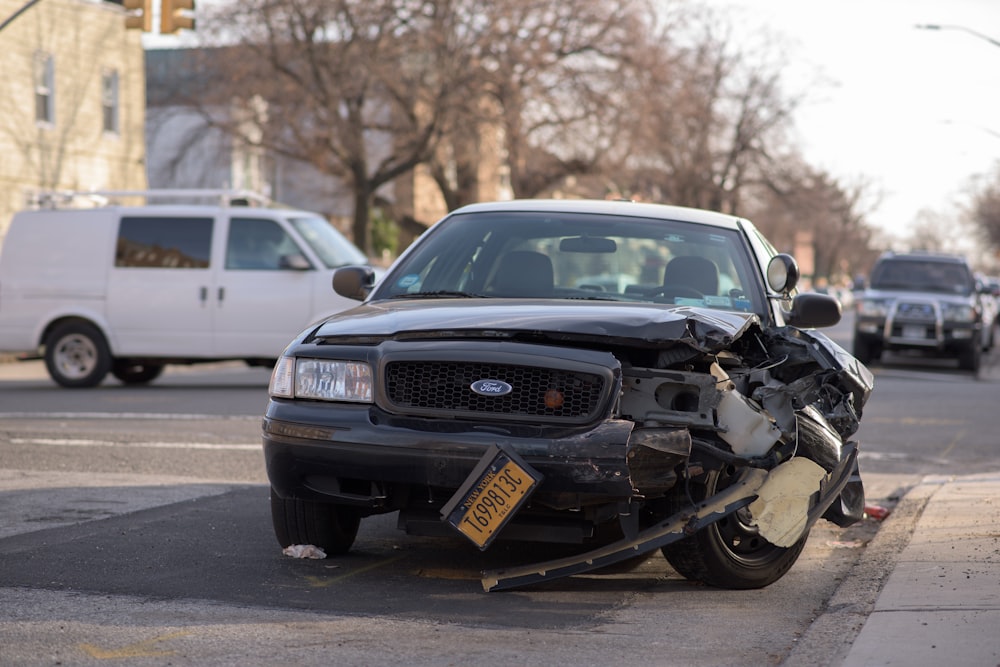Coping with the Psychological Aftermath of Your First Car Accident: A Comprehensive Guide

Your first time behind the wheel is a significant milestone in life, representing newfound freedom and independence. However, when this experience takes a terrifying turn with a car accident, the emotional toll can be immense. In this comprehensive guide, we will delve deeply into the world of first-time car accidents, exploring the myriad emotions and psychological challenges you may face. We will provide a step-by-step guide on how to cope with the aftermath, regain your confidence, and, most importantly, heal psychologically.
I. The Emotional Rollercoaster:
- Shock and Disbelief:
- A car accident can happen in the blink of an eye, leaving you in a state of shock and disbelief. The suddenness of the event can be overwhelming, and it's entirely normal to feel this way. We'll discuss strategies for managing these initial emotions.
- Guilt and Self-Blame:
- Many accident survivors experience guilt and self-blame, even when they were not at fault. We'll delve into why these feelings arise and how to address them constructively.
- Anxiety and Fear:
- The fear of driving after an accident can be paralyzing. We'll explore techniques for managing anxiety and rebuilding your sense of safety on the road.
II. Understanding Trauma:
- Psychological Trauma:
- We'll define psychological trauma and its connection to car accidents, explaining why even a single traumatic event can have lasting effects on your mental well-being.
- PTSD:
- Post-traumatic stress disorder (PTSD) is a potential outcome of a car accident. We'll provide insights into recognizing symptoms and seeking professional help.
III. The Healing Process:
- Seek Medical Attention:
- Your physical health should be a top priority. We'll emphasize the importance of seeking medical attention promptly and ensuring you address any injuries.
- Talk About It:
- Sharing your thoughts and feelings with friends, family, or a therapist can be incredibly therapeutic. We'll discuss the benefits of open communication.
- Keep a Journal:
- Journaling can be a powerful tool for processing your emotions. We'll provide guidance on how to start and maintain a journal.
- Support Groups:
- Connecting with others who have experienced similar trauma can provide a sense of belonging and understanding. We'll explore the benefits of joining support groups.
- Professional Help:
- Sometimes, professional therapy or counseling is necessary to cope with trauma effectively. We'll explain when and why you should consider seeking professional help.
IV. Rebuilding Confidence:
- Gradual Exposure:
- Gradually reintroducing yourself to driving is a key step in rebuilding your confidence. We'll provide a structured approach for this process.
- Defensive Driving Courses:
- Defensive driving courses can enhance your skills and safety awareness. We'll discuss how enrolling in one can benefit you.
- Visualization Techniques:
- Mental preparation can significantly impact your confidence. We'll introduce visualization exercises to help you feel more secure on the road.
V. Overcoming Fear of Driving:
- Exposure Therapy:
- Exposure therapy is a proven method for reducing fear associated with driving. We'll explain how it works and how you can apply it.
- Relaxation Techniques:
- Anxiety management is crucial. We'll provide relaxation exercises like deep breathing and progressive muscle relaxation.
VI. Dealing with Insurance and Legal Matters:
- Insurance Claims:
- Navigating the insurance claim process can be complex. We'll offer guidance on what to expect and how to protect your interests.
- Legal Considerations:
- In cases with legal implications, consulting an attorney is essential. We'll outline the circumstances where legal advice is necessary.
VII. Reconnecting with Driving:
- Accompanied Drives:
- We'll recommend starting with drives accompanied by a trusted friend or family member to gradually regain your comfort.
- Solo Short Trips:
- As your confidence grows, you can progress to short solo trips before tackling longer journeys.
- Positive Reinforcement:
- Acknowledging and celebrating small milestones in your journey to rebuilding confidence can be immensely rewarding.
VIII. Moving Forward:
- Lessons Learned:
- Reflecting on the lessons and insights gained from the accident is essential for personal growth and recovery.
- Pay It Forward:
- Consider opportunities to share your experience and educate others about safe driving, potentially preventing future accidents.
Conclusion:
While a first-time car accident can be emotionally devastating, it's crucial to recognize that healing is possible. By addressing the emotional aftermath, seeking support when needed, and gradually rebuilding your confidence, you can regain your ability to drive safely and move forward with newfound resilience. Your journey to healing after a car accident is a testament to your strength and determination, ultimately making you a more cautious and empathetic driver on the road.




































































